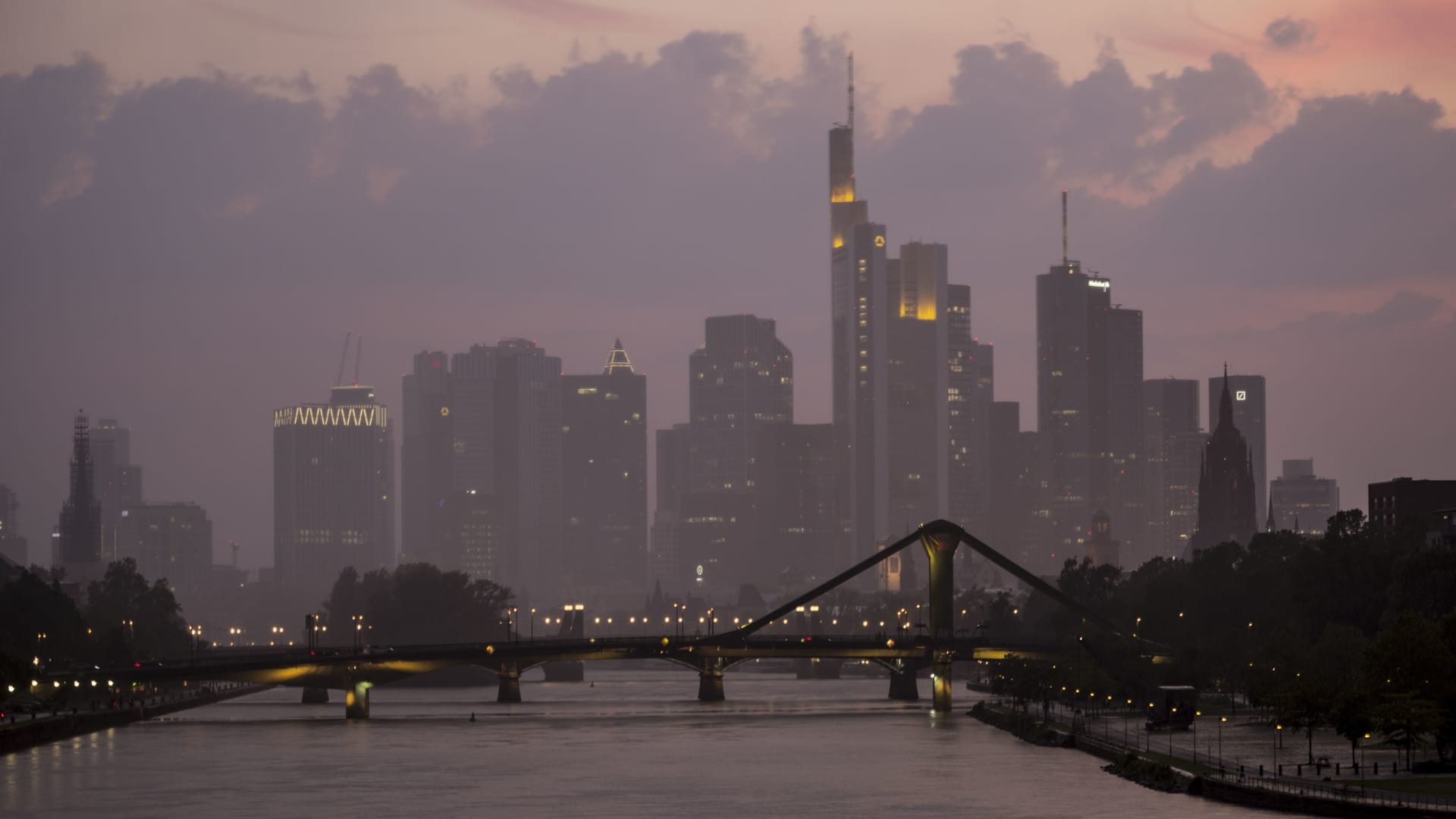Germany is once again the “sick man of Europe,” according to Hans-Werner Sinn, president emeritus at the Ifo institute, and the challenges that poses, particularly in terms of the country’s energy strategy, could serve to benefit increasingly popular right-wing parties.
The “sick man of Europe” moniker has resurfaced in recent weeks as manufacturing output continues to stutter in the region’s largest economy and the country grapples with high energy prices. The label was originally used to describe the German economy in 1998 as it navigated the costly challenges of a post-reunification economy.
“It is not a short-term phenomenon,” Sinn told CNBC’s Steve Sedgwick at the Ambrosetti Forum in Italy on Friday.
It “has to do with the automobile industry, which is the heart of the German industry and many things hinge on that,” he said. Cars were Germany’s main export product last year, accounting for 15.6% of the value of goods sold abroad, federal statistics office data shows.
Germany reported a foreign trade deficit for the first time in decades in May 2022, totaling 1 billion euros ($1.03 billion). The country had briefly shifted from a trade surplus to importing more than it exports.
Germany has since returned to a trade surplus, which came to 18.7 billion euros in June 2023, according to the federal statistics office, but exports remain sluggish.
Plunge in business sentiment
Sinn said investor doubts about the feasibility of Germany’s sustainability goals also play into the description of the country as the “sick man of Europe.”
One target currently in the sights of the German government is becoming carbon neutral by 2045. These plans came into sharp focus as Europe looked to detach itself from Russian gas supplies following the Kremlin’s full-scale invasion of Ukraine, and prices shot up.
Some described Germany’s ambitions to move away from Russian gas as “wildly optimistic,” particularly in light of the country’s climate targets.
Rain falls over the finance district and the European Central Bank (ECB) in Frankfurt, Germany.
Thomas Lohnes | Getty Images News | Getty Images
Speaking at the Ambrosetti Forum, Sinn said a reliance on renewable technologies such as wind and solar would cause a “volatility problem,” which could pose issues for businesses.
“You need to fill [those gaps] with conventional energy so it’s very difficult to have this double structure which we will have to sustain in the future. On the one hand the green volatile energy and on the other hand the conventional energy to fill the gaps,” he said.
“This is double cost. This is high energy cost and this is not good for industry. It is a difficult course.”
Germany could lose 2% to 3% of its current industrial capacity as companies move operations to countries where gas and electricity are cheaper, such as the U.S. or Saudi Arabia, according to a research note released in August by Berenberg.
Uncertainty about energy prices has likely contributed to a “plunge” in business sentiment, Holger Schmieding, chief economist at Berenberg, wrote in the note. He added that “the current policy uncertainty and the dismay about half-baked government plans are not structural factors that look set to hold back the German economy for long.”
There is a backlash clearly … The population is now moving to the right.
Hans-Werner Sinn
President emeritus at the Ifo institute
But there are growing signs of public disenchantment in the shift to a more sustainable Europe, with a so-called “greenlash” emerging as people feel the cost impacts.
Sinn suggested there would be political ramifications as a result of the focus on sustainability.
“There is a backlash clearly … The population is now moving to the right,” Sinn said, referring to the popularity of the right-leaning Alternative for Germany party, which won a district council election for the first time in June.
“I am not moving to evaluate anything here, but … the policies which were, for ideological reasons, completely overdrawn … Pragmatism is a little bit missing in current policy,” he added.
Germany’s Federal Ministry for Economic Affairs and Climate Action did not immediately respond to CNBC’s request for comment.

